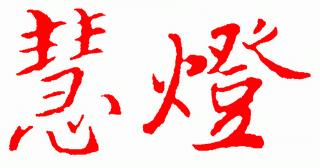Teachings Of Master Man Sang
Sutra of the Eight Realizations of Great Beings
THE FIVE AGGREGATES
AND NO SELF
The Five Skandas, or Five Aggregates, refer to form, sensation, perception, mental formations and consciousness.
Our life can be divided into two categories – the material and the spiritual. “Form” refers to our body of flesh and blood, or the material entity. The other four aggregates cover the spiritual aspect. “Sensation” means our feelings – positive feelings, negative feelings and feelings that are neither positive nor negative. “Perception” is our memories of the past, plans for the present and imaginings of the future.
“Mental formations” lead to actions, which are triggered by our thoughts. Mental formations can also mean change. We continuously experience growth and change in our lives, as we pass from babyhood to adulthood to old age. There is biological change – our hair grows, our sinews develop, our pulse beats. Psychologically, our ideas and thoughts are constantly evolving. These are changes in our mental formations.
“Consciousness” means our eyes becoming conscious of the external world, our ears becoming aware of a range of sounds, our nose being able to distinguish smells, our tongue being able to differentiate among tastes, and our body being capable of telling warmth from cold. Our mental consciousness deals with the images associated with our memories and thoughts. There are also the seventh consciousness, or manas, and the eight consciousness, or alaya. To sum up, our lives are made up of the Five Aggregates of form, sensation, perception, mental formations and consciousness.
How are we to understand the “self” in “no self”? Buddhism has four explanations relating to the self, or I, me and mine: at ease, in control, permanent and unique. For example, when we say this house belongs to “me,” we mean that the house belongs to me alone (unique). I am the master of the house, and I can to make alterations to it, demolish it or rebuild it as I see fit (in control). Being in control, I am at ease. I can live in the house as long as I wish (permanence).
As far as our lives are concerned, however, do these four conditions exist? Since life consists of the Five Aggregates, we cannot do without any one of them – so there is no uniqueness. Our life evolves over time, and we cannot avoid ageing. So there is no permanence. Since none of us has any control over birth, ageing, sickness and death, we cannot truly be at ease.
Therefore we should recognize that our life is merely the karmic confluence of the Five Aggregates. Its essence is that there is no self.
THE BODY IS FALSE AND WITHOUT A MASTER
The great Song Dynasty scholar, Su Dongpo, had long been interested in Buddhism. One day, he went to Jinshan Monastery to visit Zen Master Foyin. The master happened to be giving a Dharma talk, and there was not an empty seat in the hall.
“We are full, there isn’t a place for you,” Master Foyin said jestingly to Su Dongpo.
“Can you not lend me your body as a seat?” asked Su Dongpo.
“I have a question,” replied Master Foyin. “If you can answer it, I will lend you my body as a seat. If you cannot, please leave your jade belt here as a souvenir.”
Master Foyin said to his visitor: “The scriptures say that the Four Elements are subject to suffering and empty in nature, and that the Five Aggregates are devoid of self. Please tell me with what will you be sitting?”
Su Dongpo was speechless. He had to leave his jade belt at Jinshan Monastery.
“Things appear and disappear; they are subject to constant change. They are false and have no master.” This saying elucidates the meaning of suffering, emptiness and no self. “False” means to be without real substance. Our physical body is made up of the five elements of form, sensation, perception, mental formations and consciousness. Only by being aware of the false self constituted by the Five Aggregates can we know our true self.
Ordinary people, though, take this empty, suffering and false self to be their true self. This self is the central consideration in everything they do. They accumulate much negative karma by catering to their personal desires and interests. The true self in their essential natures is buried.
We must recognize that our body is merely the Five Aggregates, constituted according to various circumstances. It can change or even dissipate at any time, according to alterations in the circumstances governing the Five Aggregates. It is false and without a master. It has no control, nor is it free. It is impermanent and insubstantial.
Realizing that the Five Aggregates have no self, we should not be obstinate about egoistical pursuits. We should treasure the present moment, and make use of the physical body of our false self to do good works and accumulate positive karma.
The Sixth Zen Patriarch, Huineng, said: “With a self, I commit sins. Without one, my good fortune is boundless.” This is a reminder that we should use what is false to cultivate that which is real. By serving other beings selflessly, we benefit ourselves even as we help others.
